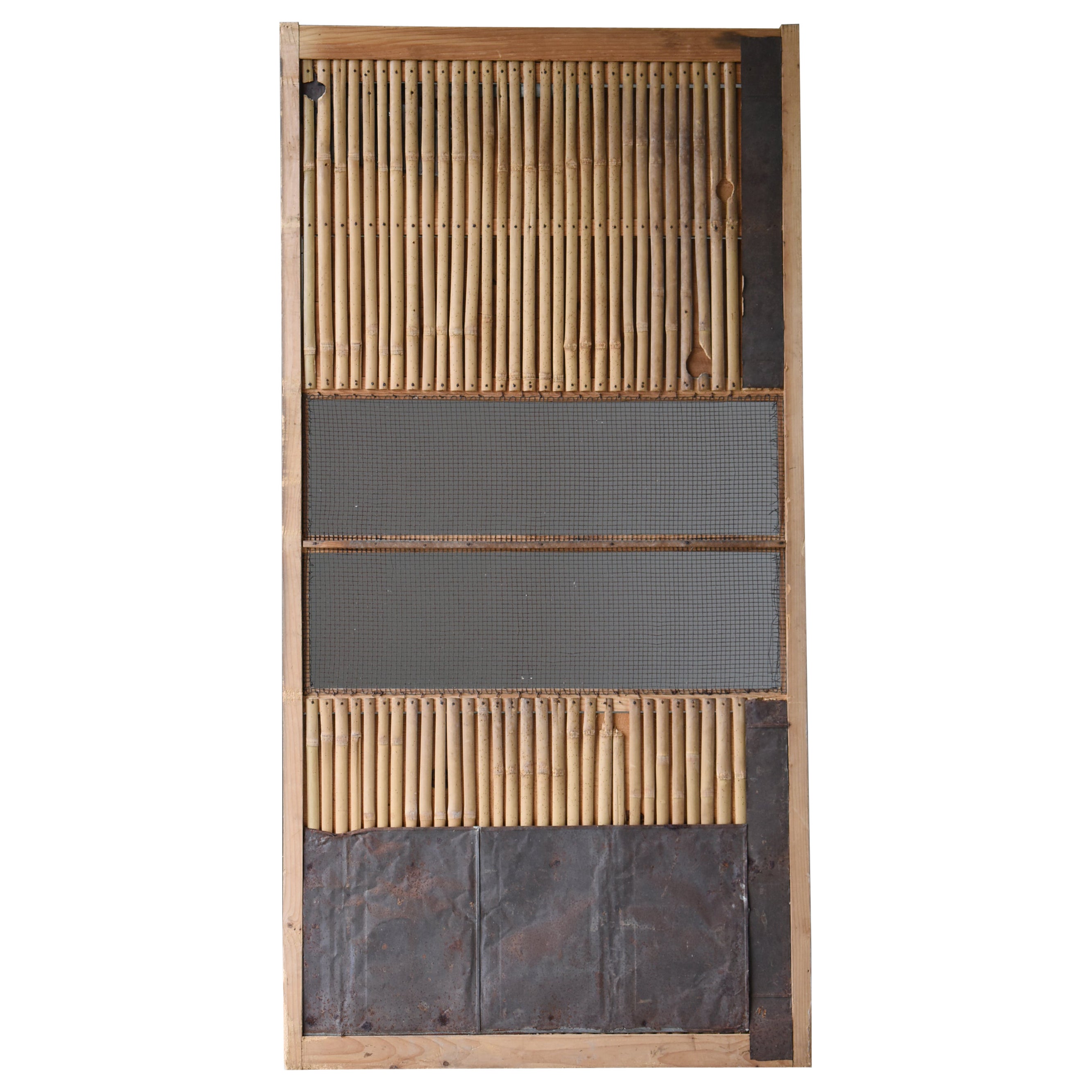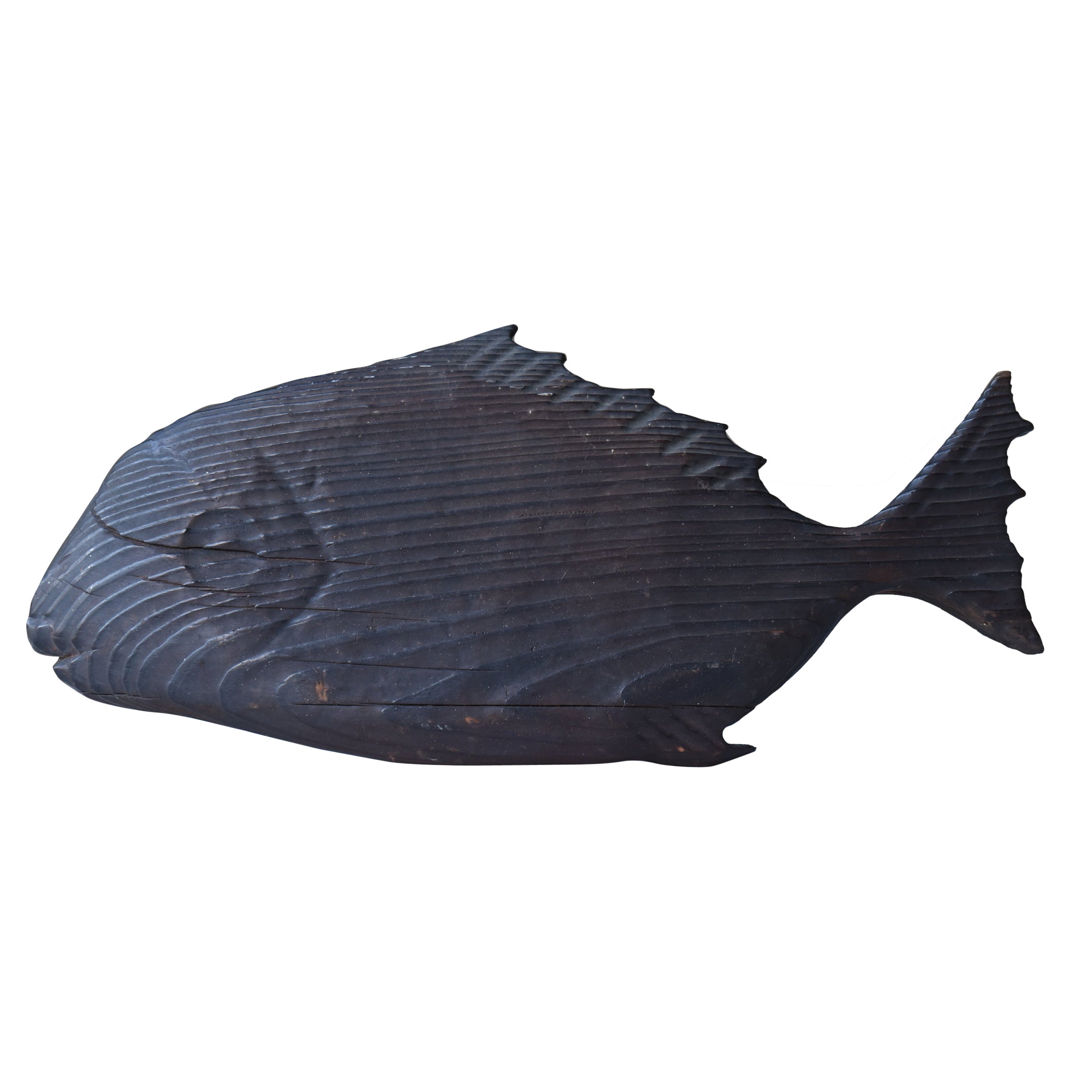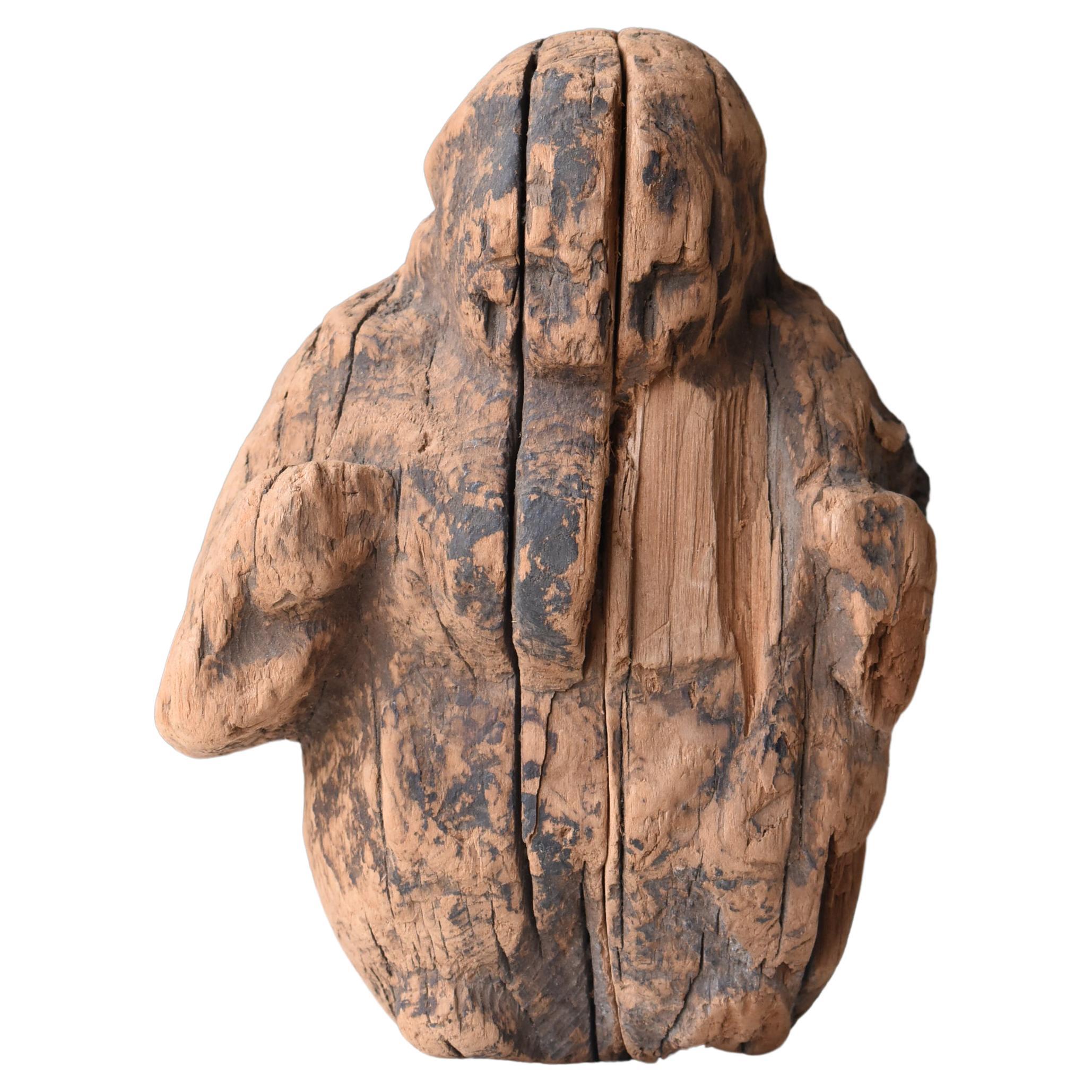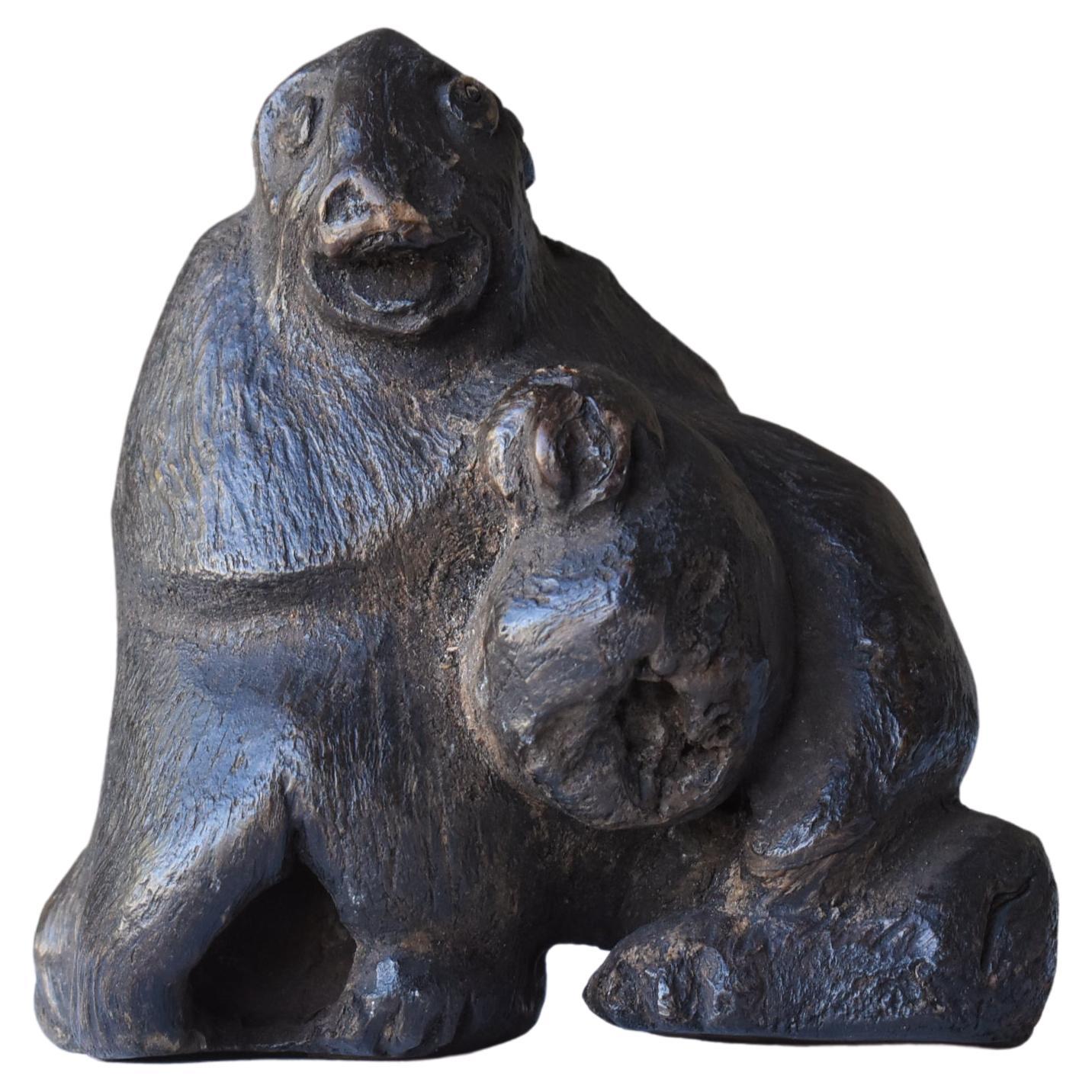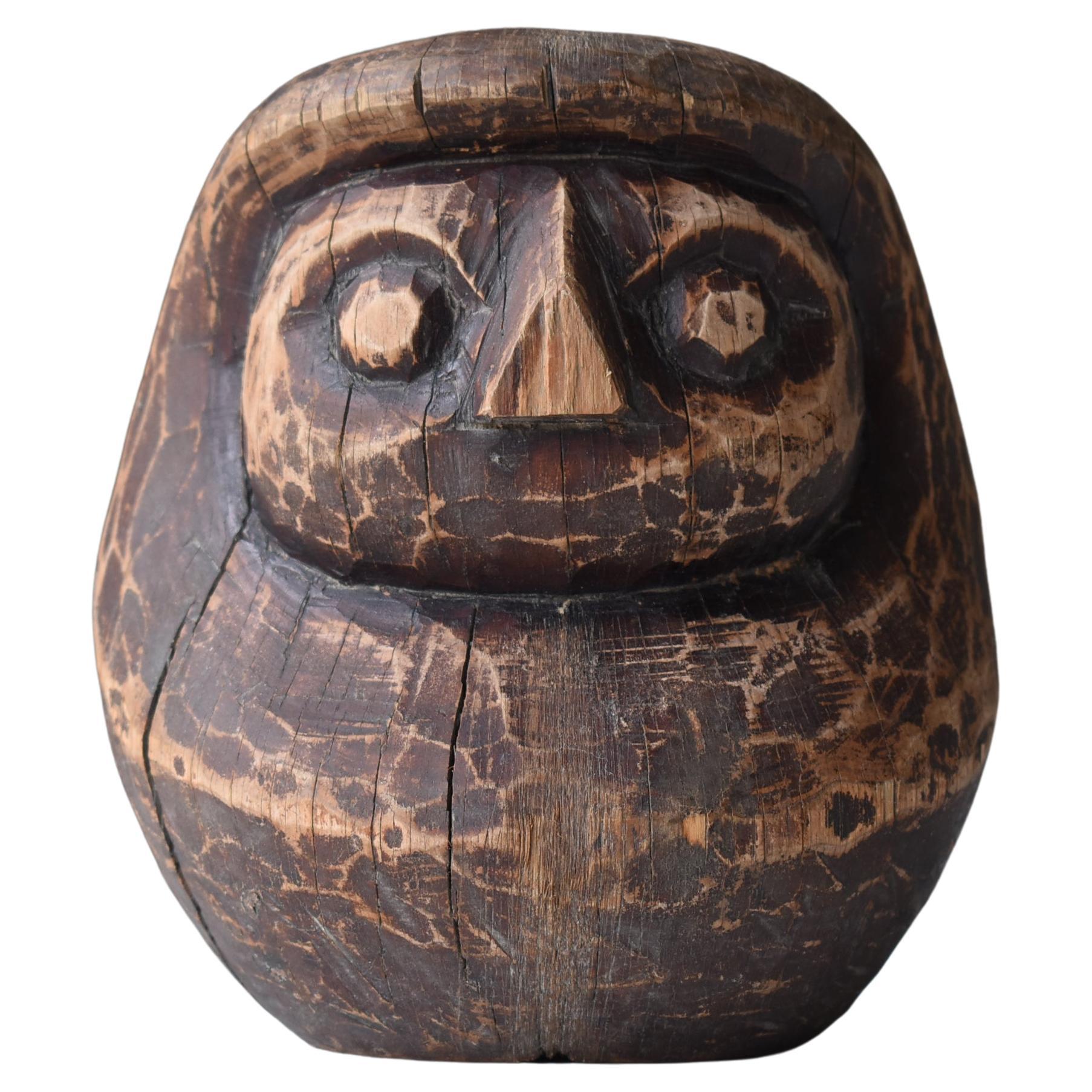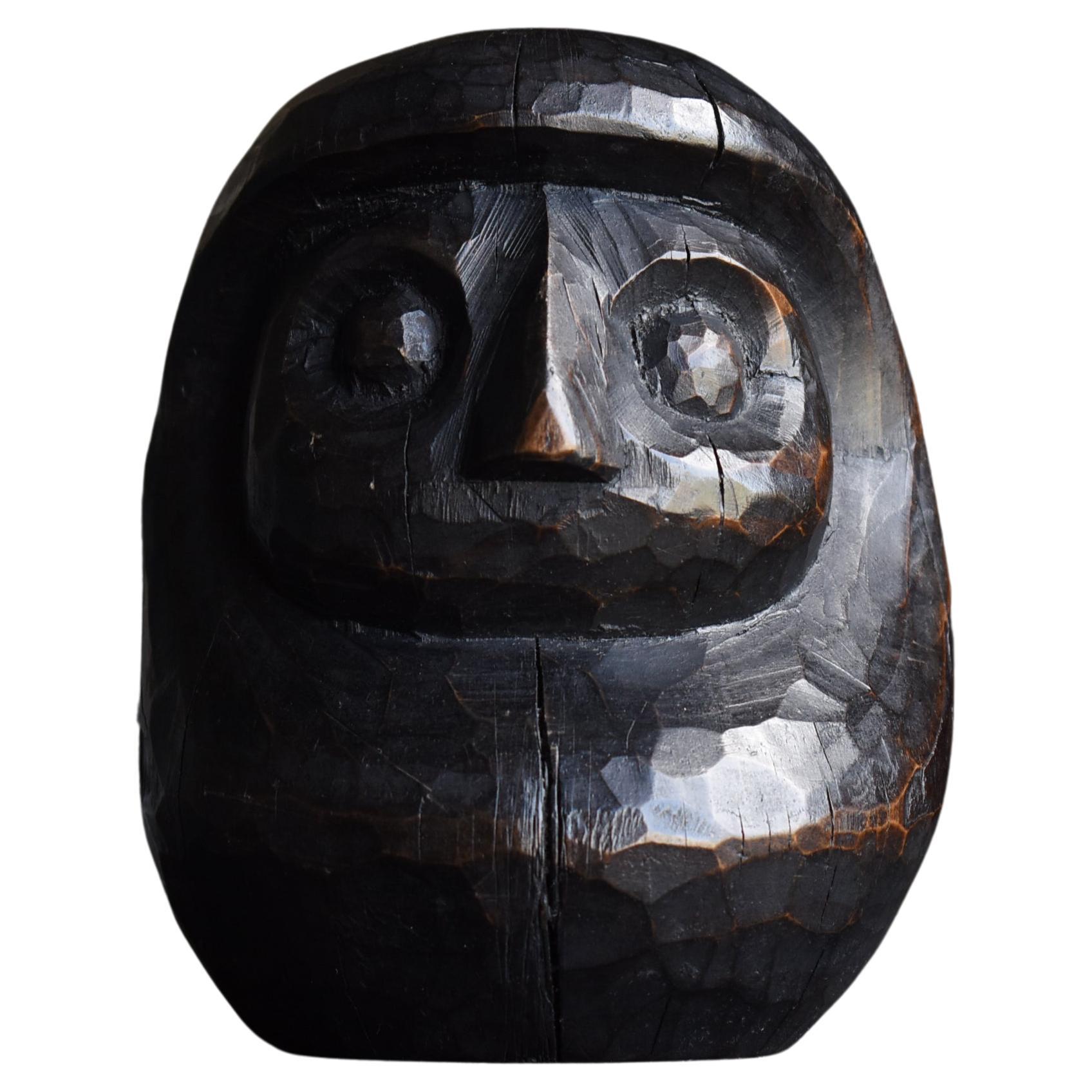Items Similar to Japanese Antique Wood Carving Fish 1860s-1900s / Mingei Figurine Object Wabisabi
Want more images or videos?
Request additional images or videos from the seller
1 of 13
Japanese Antique Wood Carving Fish 1860s-1900s / Mingei Figurine Object Wabisabi
About the Item
This is a very old Japanese wood carving of a fish.
It is a wood carving from the Meiji period (1860s-1900s).
It is carved from cedar wood.
This wood carving is attached to a free hook used in hearths.
Fish are considered lucky charms, as they "call water" and are meant to prevent accidents with fire.
It is a very beautiful wood carving with a black tinge.
The expression of a smiling face is very pleasing.
This is a very rare item that evokes a sense of wabi-sabi.
Weight 1kg.
- Dimensions:Height: 7.49 in (19 cm)Width: 15.75 in (40 cm)Depth: 4.34 in (11 cm)
- Style:Meiji (Of the Period)
- Materials and Techniques:
- Place of Origin:
- Period:
- Date of Manufacture:1860s-1900s
- Condition:
- Seller Location:Sammu-shi, JP
- Reference Number:1stDibs: LU5487237520072
About the Seller
5.0
Platinum Seller
These expertly vetted sellers are 1stDibs' most experienced sellers and are rated highest by our customers.
Established in 2015
1stDibs seller since 2020
1,106 sales on 1stDibs
Typical response time: 4 hours
- ShippingRetrieving quote...Ships From: Taito-ku, Japan
- Return PolicyA return for this item may be initiated within 7 days of delivery.
More From This SellerView All
- Japanese Antique Wood Carving Fish 1860s-1900s / Mingei Figurine Object WabisabiLocated in Sammu-shi, ChibaThis is a very old Japanese wood carving of a fish. It is a wood carving from the Meiji period (1860s-1900s). It is carved from cedar wood. This wood carving is attached to a free h...Category
Early 20th Century Japanese Meiji Sculptures and Carvings
MaterialsCedar
- Japanese Antique Wood Carving「Daikokuten」1860s-1900s / Figurine Mingei WabisabiLocated in Sammu-shi, ChibaThis is a very old Japanese wooden statue. It is from the Meiji era. (1860s-1900s). It appears to be made of cedar wood. It is called "Daikokut...Category
Early 20th Century Japanese Meiji Sculptures and Carvings
MaterialsCedar
- Japanese Antique Wood Carving Monkey 1860s-1900s / Figurine Sculpture Wabi SabiLocated in Sammu-shi, ChibaThis is a very old Japanese wood carving of a monkey. It is a wood carving from the Meiji period (1860s-1900s). It appears to be carved from cedar wood. "Monkey holding a peach" Pea...Category
Mid-20th Century Japanese Meiji Sculptures and Carvings
MaterialsCedar
- Japanese Antique Wood Carving Daruma 1860s-1900s / Sculpture Mingei WabisabiLocated in Sammu-shi, ChibaVery old Japanese wooden Daruma doll. It was made during the Meiji period (1860s-1900s). The material is cedar wood. This wooden mould is the prototype of the Daruma doll. Many Daruma dolls were mass-produced using this wooden form...Category
Early 20th Century Japanese Meiji Sculptures and Carvings
MaterialsCedar
- Japanese Antique Black Daruma 1860s-1900s / Wood Carving Figurine WabisabiLocated in Sammu-shi, ChibaThis is a very old wooden black Daruma doll. It was made in the Meiji period (1860s-1900s). The material is cedar wood. This wooden form is the original D...Category
Early 20th Century Japanese Meiji Sculptures and Carvings
MaterialsCedar
- Japanese Antique Wabisabi Sliding Door 1860s-1900s/Object Mingei ArtLocated in Sammu-shi, ChibaThis is a very old Japanese sliding door. It is from the Meiji period (1860s-1900s). It is made of cedar wood, bamboo, tin, and various other ma...Category
Early 20th Century Japanese Meiji Doors and Gates
MaterialsSteel
You May Also Like
- Japanese Antique Sliding Door, Wabisabi Door, Object Mingei Art PanelLocated in Katori-Shi, 12This is a very old Japanese sliding door. It is a simple design that conveys the charm of the material. You can feel the world of wabi and sab...Category
Early 20th Century Meiji Doors and Gates
MaterialsWood
- Japan 1890 Meiji Period Ebisu Sculpture in Wood Carving of an Old FishermanLocated in Miami, FLAn extremely well detailed wood carving of Ebisu, as a fisherman. Beautiful and well detailed sculpture, created in Japan during the Meiji dynastic period (1868-1912) back in the 1890's. This piece represent the god of good fortune Ebisu. Was exceptionally carved and executed from one solid single piece of rose wood, showing a gorgeous face expression, with intricate details in the hands and feets, he's carrying as usual a rod and a fish. Ebisu (yebisu), ???, god of fortune, the ocean and fisherman. In the japanese mythology is one of the seven gods of luck, sichi-fuku-jin, the patron of the fisherman and tradesmen. he is depicted as a bearded, smiling fisherman with formal long court ropes, often carrying a rod in one hand and a tai, symbolic fish of the good luck, in the other. The height is 14.25 inches (36.20 cm) and the base measurements is 6.5 by 6.45 inches (16.5 x 16.38 cm). Meiji period, is an era of Japanese history that extended from October 23, 1868 to July 30, 1912.The Meiji era was the first half of the Empire of Japan, when the Japanese people moved from being an isolated feudal society at risk of colonization by Western powers to the new paradigm of a modern, industrialized nation state and emergent great power, influenced by Western scientific, technological, philosophical, political, legal, and aesthetic ideas. As a result of such wholesale adoption of radically different ideas, the changes to Japan were profound, and affected its social structure, internal politics, economy, military, and foreign...Category
Antique 1890s Japanese Meiji Sculptures and Carvings
MaterialsWood
- Monumental Japanese Bas Relief Carving on Natural Wood SlabLocated in Vero Beach, FLMonumental Japanese bas relief carving on natural wood slab Palatial sized Japanese wood carving from the Meiji Period (1868-1912). This stunning sc...Category
Antique Late 19th Century Japanese Japonisme Sculptures and Carvings
MaterialsWood, Lacquer
- Carved Wood Ainu Bear with Baby and Fish, Hokkaido, Japan, Keyaki, Showa PeriodLocated in Point Richmond, CAAinu Bear with baby and fish, Hokkaido, Japan, Keyaki, Showa period. Hewn from one solid piece of Keyaki wood, this bear flashes a ferocious expression or...Category
20th Century Japanese Showa Sculptures and Carvings
MaterialsWood
- Japanese Meiji Noh Mask in Carved WoodLocated in New York, NYJapanese early Meiji period Noh theater mask made of carved wood with gofun layers. The piece was made in Japan in circa 1880 and is signed on the back. In great antique condition wi...Category
Antique 1880s Japanese Meiji Sculptures and Carvings
MaterialsWood
- Tenjin-Sama, Wood, Japanese Shinto Deity of Learning and Wisdom, Meiji PeriodLocated in Point Richmond, CATenjin-Sama, Shinto Deity of Learning and Wisdom, Meiji Period Tenjin,-Sama, Deification of Sugawara no Michizane, was a famous scholar, poet and politician of the Heian period. In...Category
Antique Late 19th Century Japanese Meiji Sculptures and Carvings
MaterialsWood
Recently Viewed
View AllMore Ways To Browse
Space Age Candle
Antique Wooden Burmese Mandalay Buddha
Asian Antique Hand Carved Signs
Stone Large Japanese Lanterns
Wooden Monk Statue
The Wrathful
Outdoor Tiger
Large Brass Buddha
Wood Carving Ocean Fish
Outdoor Sculpture Tiger
Hang Dynasty
Paper Lantern On Water
Dragon Ivory Necklace
Hand Carved Temple Dog
Fine Arts Japanese Lantern
Japanese Wood Turtle
Pair Japanese Wood Sculptures
Laos Weight
